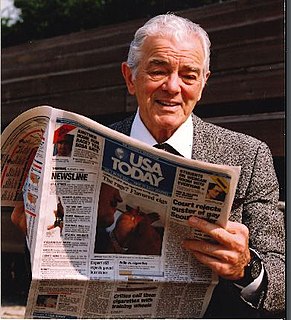A Quote by Marcus Buckingham
The difference between a pebble and a mountain lies in whom you ask to move it.
Related Quotes
Mothers know the difference between a broth and a consommé. And the difference between damask and chintz. And the difference between vinyl and Naugahyde. And the difference between a house and a home. And the difference between a romantic and a stalker. And the difference between a rock and a hard place.
Lies 1: There is only the present and nothing to remember. Lies 2: Time is a straight line. Lies 3: The difference between the past and the futures is that one has happened while the other has not. Lies 4: We can only be in one place at a time. Lies 5: Any proposition that contains the word 'finite' (the world, the universe, experience, ourselves...) Lies 6: Reality as something which can be agreed upon. Lies 7: Reality is truth.
Ask most people who live in a home and have a mortgage on it whether they own their own home and the answer is almost guaranteed to be a resounding 'yes'. Yet it's the wrong answer. Technically speaking, until they have paid the mortgage off, they don't own it. Herein lies the difference between reality and illusion, between ownership and control. This confusion lies not only at the individual level, but also at the heart of government thinking.
The cosmic humor is that if you desire to move mountains and you continue to purify yourself, ultimately you will arrive at the place where you are able to move mountains. But in order to arrive at this position of power you will have had to give up being he-who-wanted-to-move-mountains so that you can be he-who-put-the-mountain-there-in-the-first-place. The humor is that finally when you have the power to move the mountain, you are the person who placed it there--so there the mountain stays.
We've been in the mountain of war. We've been in the mountain of violence. We've been in the mountain of hatred long enough. It is necessary to move on now, but only by moving out of this mountain can we move to the promised land of justice and brotherhood and the Kingdom of God. It all boils down to the fact that we must never allow ourselves to become satisfied with unattained goals. We must always maintain a kind of divine discontent.
We're all impostors to ourselves. By that I mean that we know instinctively, intimately, the difference between whom we are inside and who we appear to be to others. Most of the time - when we aren't flat lying about something or playing a particularly stylized role in some heightened dramatic situation - this difference between the internal and the external is modest and manageable.
The difference between you and her (whom I to you did once prefer) Is clear enough to settle: She like a diamond shone, but you Shine like an early drop of dew Poised on a red rose petal. The dew-drop carries in its eye Mountain and forest, sea and sky, With every change of weather; Contrariwise, a diamond splits The prospect into idle bits That none can piece together.


































